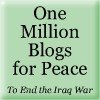A Study of Violence
Violence seems to be more and more a part of our culture, and I, for one, find that fact to be regrettable. Our entertainment is thoroughly laced with it; large numbers of people are interested in a movie, for example, only if it is full of blood, explosions, high-speed chases, and daring escapes. Why is this true? What does it say about us?
According to Merriam-Webster, violence is, basically, outrage:
- exertion of physical force so as to injure or abuse as in warfare or effecting illegal entry into a house—(Instantly, we see in our minds films of a bad guy kicking open a door or news clips of the war in Iraq . . . .)
- an instance of violent treatment or procedure—(. . . police beating a druggie with a nightstick . . . )
- injury by or as if by distortion, infringement, or profanation : OUTRAGE—(. . . a newborn thrown into a trash bin . . .)
- intense, turbulent, or furious and often destructive action or force, as the violence of a storm—(. . . scenes from the tsunami of two years ago and Hurricane Katrina last year . . .)
- vehement feeling or expression : FERVOR—(. . . people yelling at each other.)
Violence occurs in much literature, as well as in popular media-type entertainment. That is because literature does not just appear, all by itself, out there on the edges somewhere; it reflects life. Therefore, it must be true that the reason we see violence in literature and entertainment is that it happens in life. It is universal.
We are both shocked by it and drawn to it; we study it and obsess over it sometimes. We both fear it and want to avoid it, but we somehow enjoy reading about it and/or seeing it in games and movies. (That in itself is a little shocking, isn’t it?)
In both film and literature, as in life, people usually commit violent acts for reasons, whether understandable or twisted and perverse. When people commit violence, we discuss their motives; if it appears to be without reason, we say it is gratuitous or senseless.
Read this little story by Rudyard Kipling:
"There is an ancient legend which tells us that when a man first achieved a most notable deed he wished to explain to his tribe what he had done. As soon as he began to speak, however, he was smitten with dumbness, he lacked words, and sat down. Then there arose -- according to the story -- a masterless man, one who had taken no part in the action of his fellow, who had no special virtue, but afflicted -- that is the phrase -- with the magic of the necessary words. He saw, he told, he described the merits of the notable deed in such a fashion, we are assured, that the words `became alive and walked up and down in the hearts of his hearers.' Thereupon, the tribe seeing that the words were certainly alive, and fearing lest the man with the words would hand down untrue tales about them to their children, they took and killed him. But later they saw that the magic was in the words, not in the man."
(This story is part of a talk Kipling made; read the whole thing, if you want to, at this link: Literature—A Book of Words.)
Consider the power of words—of the written word—of pictures.
Why did the tribe kill the man? Did they have understandable motives? After they killed him, how and why do you think they changed their minds about him?
Do you think humans are basically like the people in this story?








No comments:
Post a Comment